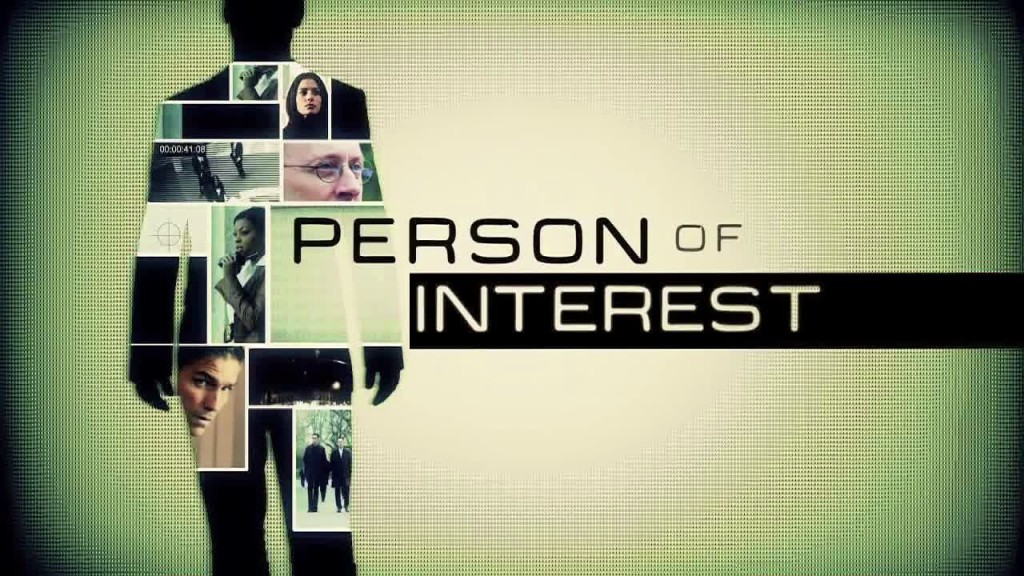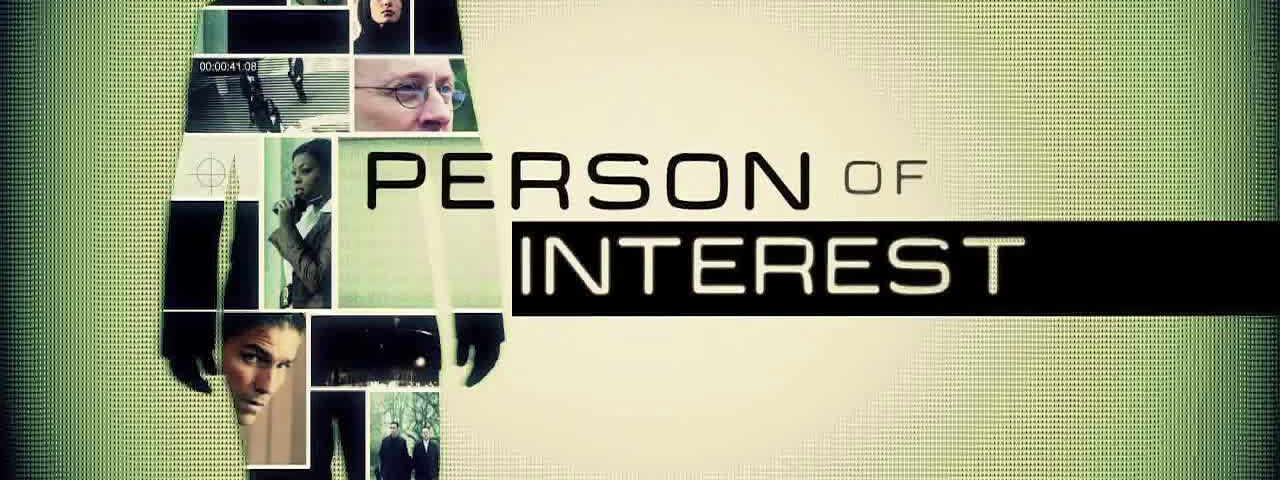
I’ll be honest, I was a tad worried about how Person of Interest’s season 4 premiere would play out. In my opinion, season 3 ended with one of the strongest season finales of the past year, possibly even surpassing Hannibal’s spectacular season 2 finale. However, despite being a brilliant finale it did introduce a certain fly into the ointment. Deus Ex Machina, the appropriately titled finale, altered the paradigm of the show, and wrote the characters into such a well constructed corner, that I honestly wasn’t certain that the show could continue to exist in such a state. Fortunately, it appears that my concerns were largely unwarranted.
At the end of season 3, the data filtering artificial intelligence system Samaritan went online. Essentially the evil twin to our protagonists’ Machine, Samaritan is a near omniscient observer that, as we are shown in the opening, is dedicated to maintaining order and eliminating anyone who might spread awareness of its existence. The only method by which our main characters can hide from Samaritan is within carefully constructed identities that is has been pre-programmed to ignore. If they act out in any significant way, they will be labeled a threat that requires termination.
In Panopticon, our season 4 premiere, we spend roughly the first quarter of the episode watching how our protagonists are dealing with living out in the open. Shaw, unsurprisingly, seems to have the most difficulty adjusting to everyday life. Sarah Shahi has always played her as a bit of a lovable psychopath, and the image of her standing in the cosmetics section of a mall macing people with free perfume samples is all the evidence that I will ever need that the Machine has a sense of humor. On the other hand, Finch and Reese have been provided identities that are more inline with their sensibilities and skill sets, with Finch teaching college classes and Reese serving as a detective in the NYPD. That’s not to say that they are not frustrated with their positions though. Reese finds himself faced with the aftermath of crimes with no way to prevent them, and Finch continues to question the ethics and nature of the Machine due to it’s request that he kill someone in the season prior. He even going so far as to display jealousy towards Root and her comparatively straight-forward relationship with the system.
The episode makes effective use of it’s surveillance style footage by switching out the somewhat raw interface of the Machine with the more streamlined interface of Samaritan. Every transition and establishing shot is a twisted reminder that Samaritan is always watching. It’s actually rather impressive how effective Samaritan is without even having a body or a voice. However, the show doesn’t quite establish how much leeway the main cast have with their cover identities. At one point, Reese attacks a street gang with a grenade launcher, and while he is berated by Shaw, it’s not clear why this didn’t cause him to be flagged by Samaritan. I suspect that the real purpose of the scene with the grenade launcher was to establish that the old approach doesn’t work anymore. It doesn’t serve as a significant issue in this episode, but it does leave a few questions regarding how restricted our characters actually are.

The primary plot of the episode is focused around what appears to be a rather standard case. The Machine informs Reese and Shaw that the owner of a local electronics shop is in danger. He’s being threatened by a gang known as “the Brotherhood” that wants him to establish a wireless telecommunications system that the police can’t listen in on. From the moment that the episode establishes the existence of a secure wireless phone network, it’s clear why the Machine wants the shop owner protected. The Machine is laying the groundwork for it’s allies to fight back against Samaritan from the shadows.
As a method of shaking up the formula, this is quite effective. The idea of a hero or group of heroes being forced to work from the shadows while being pursued isn’t new. Plenty of shows have incorporated the concept before (see shows like Alias, Fringe or even The Fugitive), and, hell, Agents of S.H.I.E.L.D. is going through a similar storyline just one timeslot earlier. On the other hand, Person of Interest appears to be relying on its intelligence to set it apart from its competitors, which might be an intelligent move in and of itself.
While this episode focuses primarily on Reese, Finch and Shaw, and their positions within the new paradigm, we also get glimpses of Fusco and various other characters including Mr. Greer, Senator Garrison, Elias and, of course, Root. Fusco gets a few appearances in this episode as his current investigation ties in with the main plot, but for the most part he doesn’t get much focus due to the fact that he is still unaware of the Machine and thus is not aware of the threat of Samaritan. Though he’s not too pleased about being left in the dark. Greer and Garrison show up for a single scene in which they discuss the state of affairs. The scene largely serves to remind the viewer of their significance as antagonists, and to show that Greer appears to be following orders as Samaritan’s subordinate, rather than the other way around. It also would appear that Greer has dissolved Decima Technologies, thus implying that the company was merely a means to an end. I’m eager to see if the show plans to draw parallels between Greer’s serving of Samaritan, and Root’s serving of the Machine. Greer also hints at the possibility of eliminating Senator Garrison which would be disappointing since it would mean losing John Domen, but, seeing as he now has a role on Gotham playing Carmine Falcone, it wouldn’t be surprising.

Going back to Root, she shows up for a number of scenes in which she encourages the other members of the main cast to trust in the Machine and follow its orders which are provided to them via the calendar app in their phones. While she alludes to job interviews and black tie dinners, we are never actually made aware of what her new line of employment is. I personally hope that it involves either educating children or providing psychiatric assistance, because the idea of Amy Acker doing either of those things is a combination of one part adorable to one part terrifying. …Actually, that might simply be a description of Root in general.
I wish I had more to say about Elias’s appearance. He’s fun as always, but Reese mainly goes to him for information and a bit of aid and, like Fusco, he’s pretty much in the same position that he was in back in season 3. That being said, I suspect that Reese and friends will probably turning to him for aid a bit more this season since he doesn’t have to worry about cover identities and “can do the things that civilized people can’t.” Not that I’m complaining. More Elias isn’t something that I’m likely to complain about.
Before I wrap this up a few Notes & Nitpicks:
- Actor Jaime Hector who is best known for playing drug kingpin Marlo Stanfield on The Wire plays the leader of The Brotherhood. Sadly, it seems unlikely that he will be a recurring character.
- Why does John still have a grenade launcher? “Going to ground” and “keeping a low profile” usually implies shedding the heavy munitions.
- No sign of Camryn Manheim’s character, Control, in this episode. Hopefully, we’ll be hearing from her again soon.
- There is also no sign of Root’s little helpers from last season. I find myself wondering what those three are up to, and what kinds of cover identities they were provided.
- There was a nice moment of awkward silence when John is promoted from narcotics to homicide and he is shown to his new desk. Nice to see that, even amongst all these changes, the show hasn’t forgotten about Carter.
- Jim Caviezel now essentially has a cave… how has he not been Batman?
Despite my initial apprehension regarding how Person of Interest would move forward, the writers have successfully gotten me excited about season 4. The episode effectively splits its focus between a seemingly standard stand-alone case of the week and establishing the show’s new world order. Deus Ex Machina and The Devil’s Share were high water marks for the series, but Panopticon gives me hope that the show might reach even higher.




Add comment